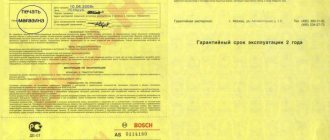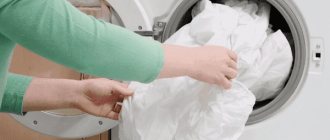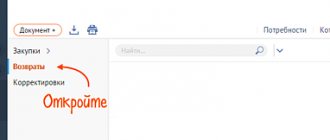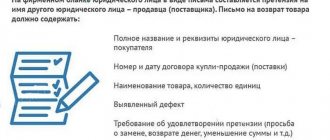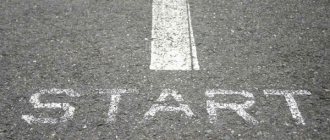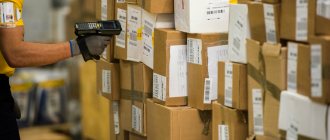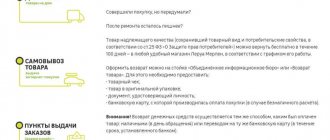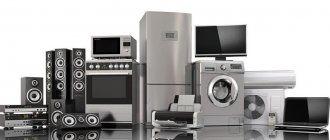Home / Complaints, courts, consumer rights / Consumer rights
Back
Published: 08/31/2018
Reading time: 8 min
0
977
According to the legislation of the Russian Federation, the buyer has the right to return non-food products of inadequate quality under warranty for repair, exchange, refund, recalculation of cost, or receipt of certain compensation. At the same time, satisfaction of such requirements is possible only in cases where it is proven that the buyer was not involved in the occurrence of the defect that caused the return.
- Examination of goods of inadequate quality: concept, legal regulation, goals of the procedure
- Objectives of the examination
- Characteristics of the procedure
- Features and results of the procedure
- The procedure for conducting an examination of the quality of goods Presentation of goods
- Compiling and submitting an application
- Appointment of examination
- Expertise
- results
To establish the causes of the deficiency, as well as resolve other possible disputes in such situations, the legislation provides for the possibility of conducting an examination of the quality of the product.
The right to conduct consumer expert assessment
According to the law on consumer rights, testing for the quality of goods can be carried out by a private or public organization accredited in this area, as well as by a private entrepreneur who has received a license for this type of activity.
If problems arise with the quality of the purchased product, it is recommended to contact the following organizations:
- Chamber of Commerce and Industry of the Russian Federation;
- Bureau of Commodity Expertise;
- Professional agencies for independent examinations.
Today, the Chamber of Commerce and Industry, which has the ability to conduct reliable assessments of goods not only on Russian territory, but also in other countries, has earned special trust among citizens of the Russian Federation.
Did you know that you can return a purchased product within 14 days, even if it is of good quality? Find out in more detail about the deadline for returning goods to the store and what you need to do to do this.
And if you purchase a low-quality product, you can write a complaint or claim to the manufacturer. Read at this address how to fill out a claim form for a defective product.
The procedure for conducting the examination
What are the features of the procedure for conducting examination of goods in such situations, taking into account practice as of 2021?
The examination may be in relation to food and non-food products. There are no fundamental differences, except that food products and food ingredients have a more limited shelf life. Therefore, efficiency is required in this matter. And this is logical: over time, the product will become unsuitable for research.
Non-food expertise is divided into many types. It all depends on the type of research object and its consumer properties. For example, examination of complex household appliances, automotive technical examination, examination of polymer materials.
Payment and cost of examination
The Russian Federation Law “On the Protection of Consumer Rights” obliges the seller to bear all costs associated with the expert procedure. As a rule, its cost is approximately 10 percent of the cost of the product being examined.
If, based on the results of the inspection, it is proven that the defect (malfunction) of the goods arose through the fault of the buyer, then he must return the established amount to the seller, or challenge the conclusion in court.
If the fault of the seller (manufacturer or carrier) is proven, then in addition to the cost of the procedure, he will have to replace the product or return the money for it. Compensation for moral damage is also possible if a deceived consumer files a similar claim in court.
Nuances of conducting an examination from the point of view of consumer protection
Art. 18 (clause 5) of the law on the protection of consumer rights obliges the seller to accept the goods sold by him of inadequate quality, and, if necessary, to check the quality of the goods. It is important for the consumer to know that the seller is obliged to notify the buyer of the date, time and place of the examination only if this requirement is reflected in the claim!
In this case:
- the goods remain in the hands of the buyer before the start of the procedure;
- the inspection is carried out only with his (the buyer’s) participation.
Otherwise, the examination may be carried out without notifying the buyer - with all the ensuing consequences.
Documents for accepting a product for research
In addition to the subject of the study, a person applying to an examination organization must attach the following documents:
- General passport required to enter into an agreement with an expert organization;
- Claim for a specific defect;
- Receipt for the goods, including packaging material, as well as labels and other tags attached to the product;
- Instructions or passport for the item of purchase (if available).
After conducting the necessary analysis and research, the specialist must compile a report.
If the examination is carried out by the buyer
Let's look at a situation where the seller does not respond to the claim and does not order an examination. The consumer may, at his own discretion:
- go to court;
- or appoint an independent examination.
If the examination is carried out by the buyer, he can use it:
- as a means of being right by resolving the issue peacefully. Show the merchant the results of the examination and try to convince him to resolve everything voluntarily;
- as a tool to substantiate a claim in court.
The choice is up to the buyer.
So, how to appoint and conduct an independent examination. The procedure for conducting an examination of the quality of a product remains the same as during an examination appointed on the initiative of responsible persons, but with minor features.
How to pick up goods
It is necessary to pick up the goods from the seller (if it was handed over to them for quality control). If you find broken factory seals, request written confirmation from the responsible persons that this was done by them during quality control.
Where to go
You should contact an expert institution. It must have a serious reputation so that its conclusion does not raise doubts either among the merchant or the court. One of the most influential expert organizations is the Russian Chamber of Commerce and Industry. Look for a representative office of the Chamber of Commerce and Industry in your city.
If you turn to experts, inquire (preferably from an independent source) about the existence of friendly relations with the seller/manufacturer. If the facts are confirmed, then it is better not to work with such specialists.
Questions to the expert
The expert must be asked questions about the essence of the case. There should not be many of them, as this will lead to an increase in the cost of the examination. And an unreasonably small number of questions may not be enough to defend your truth. Therefore, we recommend that the expert resolve the following questions:
- whether the product has a defect;
- whether the deficiency is significant;
- the reason for the defect (manufacturing defect, careless operation, etc.);
- when a deficiency arose (not in all cases such a question is appropriate).
It is still advisable to discuss issues with an expert in advance. He can usefully supplement them, expand the wording or reject unnecessary ones.
Price
Determine the cost with a specialist in advance. When conducting an examination and assessing the quality of goods, bargaining is possible. The average market cost of product quality assessment varies from 5,000 rubles to 30,000 rubles. The price is influenced by the type and complexity of the research object, as well as the number of questions to the expert. When paying for the examination, be sure to keep the payment documents. Based on it, if you win in court, you will be compensated for expenses in this amount.
Alert
Notifying interested parties about the ongoing inspection. Be sure to discuss this with an expert and decide who will send out notifications. This is usually done by an expert. Check the integrity of its execution, otherwise the results of such an examination will be questionable.
Carrying out an examination
Be present when an expert inspects the goods. Use your right to petitions, statements and comments. Relying on the expert, however, inform him of your arguments and observations. Do not hesitate to be an amateur in your reasoning, ask questions about all the activities being carried out, and ask for the opinion of a specialist about the progress of the research. Your pickiness will not allow the expert to miss the slightest detail, which will only make the conclusion more significant. With permission, use a camera to record what is happening, even if an expert is also taking photographs.
Examination report
Read the expert's report carefully. Sign it only if everything that was done during the inspection is objectively and completely included in it. For example, if it is not indicated that the product is factory sealed and the seals were broken by an expert when disassembling the product, then be sure to request that such an entry be made. Every detail is important!
Deadlines
The duration of the independent examination is determined depending on the complexity of the product and usually lasts from 10 to 30 days.
Challenging assessment results
Do not be upset if the examination of goods is not resolved in your favor. Russian legislation provides for the possibility of challenging any expert opinions.
Of course, this will require a lot of time and financial investments, but if you are confident that you are right, then you cannot retreat.
Experienced lawyers will always help resolve not only pre-trial, but also any judicial issues related to challenging the results of research on the quality of goods.
If you have encountered an unscrupulous seller who does not show a desire to meet halfway and solve the problem calmly, then the first stage in the fight for your consumer rights should be an investigation of the quality of the product by a competent organization, and then you should act according to the circumstances.
If the examination is carried out by responsible persons (seller, manufacturer)
Procedure
A dissatisfied consumer may be present during the examination of a product of inadequate quality. He must be informed:
- examination time;
- place of its production;
- name of the expert organization (full name of the expert).
During the research, the buyer can not only observe, but also:
- ask questions on the subject of the examination;
- make comments to be included in the research report;
- request additional questions from the expert (if they relate to the subject of the examination and without them the conclusion will not be objective).
For example, a laptop does not work and an expert has determined that the battery is faulty, due to which it does not turn on. You can demand that he open and inspect the internal parts of the laptop (motherboard, hard drive, electronic slots). Do not limit yourself to just the assumption of a faulty battery.
The participation of the acquirer during the examination eliminates the possibility of a “custom” examination. That is, to fabricate the result according to a behind-the-scenes agreement.
Ask the expert to present his personal passport. It is also necessary to pay attention to the competence of the specialist. Ask for a diploma in your specialty and information about your expert experience. Traders often conduct routine inspections of goods of inadequate quality in their service centers, and their conclusions are passed off as examination reports.
Expenses
The costs of paying for the examination are borne by those persons who appointed it. However, if as a result the consumer is found to be at fault for the malfunction, then the costs are transferred to the buyer.
If you are absolutely sure that the goods have become unusable due to violation of the rules of operation, storage or transportation (that is, due to the fault of the buyer), and the invoiced costs for the examination correspond to the market average (from 5,000 to 30,000 rubles), then it is better to make the payment voluntarily , as this will save you from additional costs. They are related to the storage of goods, reimbursement of legal expenses (to collect money for conducting an examination, etc.). This amount may increase by another 10,000 - 25,000 rubles.
Deadlines
The duration of the examination depends on the buyer's claim. Deadlines are:
- up to 45 days if the buyer requires repairs;
- up to 20 days when the exchange of goods is announced;
- no more than 10 days, in case of requests for a refund for the goods.
Decor
The examination is completed in two stages. First, a product inspection report is drawn up . This act reflects:
- time and place;
- information about the persons involved;
- product description;
- presence/absence of factory seals and their integrity/damage;
- detected deficiencies (or lack thereof);
- petitions and statements from those present;
- comments to the act;
- signatures of the expert and those present.
If you see the specialist’s incompetence or frivolous attitude towards the research, make comments and demand that they be included in the product inspection report. In the future, this will help to challenge the unfortunate conclusion.
Next, the expert analyzes the inspection results and draws conclusions, which he indicates in the expert report . Such a document contains the following information:
- time and date;
- name (full name) of the customer of the examination;
- what questions were posed to the expert;
- description of the product (name, serial number, condition in which it was transferred to the specialist);
- research part (reflects the results of inspection of the goods);
- conclusions in the form of answers to questions posed to the expert with technical justification. For each question, the expert gives a separate conclusion.
Notification of examination results
After the examination, the buyer is notified in writing about the consideration of his claim. If the examination took place in favor of the consumer, then his requirements, as a rule, are satisfied. Otherwise, it is reported that the expert opinion has established the consumer’s fault or the absence of defects in the product.
The consumer may request copies of the examination. This is necessary when he does not agree with the expert and is going to go to court.
Challenging
Challenging the examination is possible by:
- carrying out other independent examinations ordered by the buyer;
- filing a lawsuit to declare the refusal to satisfy the buyer’s demands illegal. During the trial, the expert's opinion is also challenged.
In such cases, we recommend choosing the second option, since conducting a separate examination in the current controversial situation will not preclude subsequent recourse to court. And in court, an independent forensic examination is often ordered.
Types of examinations and research
The full list of examinations that can be carried out at the initiative of the parties or the court includes dozens of different studies. Below we will talk about the most common types of examinations that are appointed when considering civil disputes.
The infographic shows the main points related to conducting forensic examinations.
Forensic examination of real estate
A forensic examination of property is accompanied by the study of documents, visual inspections, and instrumental examination. Expert research can be carried out:
- to determine the percentage of completion of construction;
- to confirm that the contractor will comply with the requirements of design documentation, construction permits, regulations, SP and GOST;
- to check the quality of structures, construction and finishing materials;
- to confirm the safety and reliability of an unauthorized facility;
- to identify hidden damage that cannot be verified during visual inspections;
- to determine the causes of damage or destruction of an object or individual structures.
For each type of research, special methods, standards, and equipment are used. The choice will be made by the expert when he receives a court ruling with the questions posed and conducts a preliminary analysis of the subject of research. The final conclusion will indicate the rationale for this choice.
Expertise of real estate for the court. Questions to the expert.

Konstantin M.
Expert in the field of certification, cadastre, real estate and design. Higher legal education, more than 10 years of work experience.
Ask a Question
Question to the expert
If I win the trial, can I recover the costs of the examination from the defendant? What document is needed for this?
In order to recover the costs of assessment or examination from the defendant, you need to submit contracts and payment documents. The court has the right to check the reasonableness of the prices for the expert’s services.
Hello! Is it possible to conduct a real estate examination before the trial? Or is this only allowed by the judge's determination?
Both options are allowed. You can immediately attach a report or expert opinion to the statement of claim. A request for an examination can also be submitted in court proceedings.
Is it possible to appeal an expert opinion if it is obviously erroneous?
No. expert opinions are not subject to appeal. But it is possible to conduct a re-examination that will refute the initial conclusions.
Good afternoon Can a court examination be carried out for any property, even if it is not registered in the cadastral register?
Yes. an examination can be assigned and carried out for any object. Often, an expert opinion will be the basis for subsequent recording and registration of rights in Rosreestr.
Valuation of property for court
The examination of determining the market value can be carried out before filing a claim, or directly during the trial. The purpose of the assessment may be:
- determine the market value for subsequent division between the owners, calculate the price of the claim and state duty;
- determine the monetary compensation that one of the owners will receive when transferring the object to another owner (this is necessary when the object cannot be divided in kind);
- assess the amount of damage caused by flooding, fire, poor-quality repairs, and other actions.
